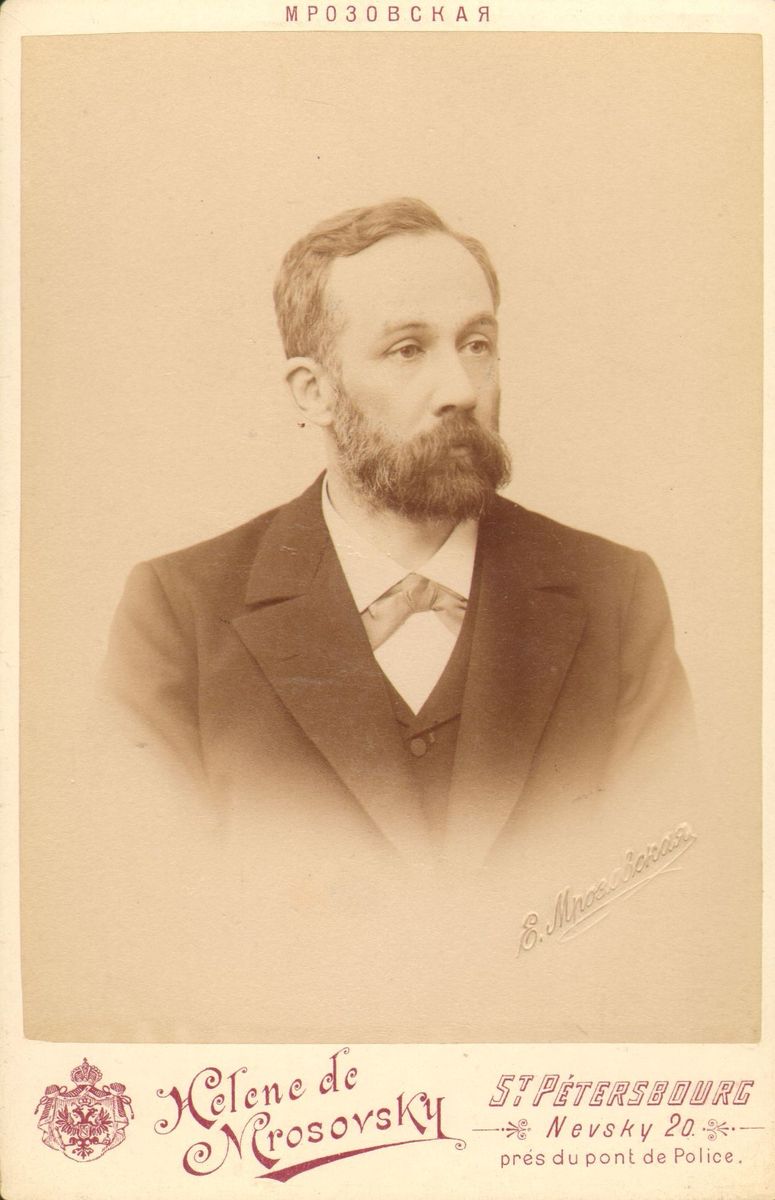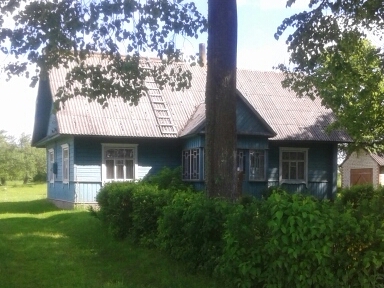|
Mūsų Senovė
''Mūsų senovė'' (literally: our past) was a Lithuanian-language academic magazine published in Kaunas, Lithuania in 1921–1922 (edited by Juozas Tumas-Vaižgantas, published by the Ministry of Education and Science (Lithuania), Ministry of Education) and in 1937–1940 (edited by Mykolas Biržiška, published by Vytautas Magnus University). It was the first attempt to publish a periodical dedicated to the study of the history in Lithuanian. It was published irregularly and mostly dealt with the materials and topics related to the Lithuanian National Revival and the Lithuanian press ban. In total, 10 issues appeared. First magazine On 16 January 1921, a gathering of a group of older Lithuanian intellectuals and activists – prof. , prof. Adomas Jakštas-Dambrauskas, Dr. Kazys Grinius, prof. Jonas Jablonskis, prof. Antanas Kriščiukaitis, prof. Petras Leonas, prelate prof. Jonas Mačiulis-Maironis, teacher Pranas Mašiotas, prof. , priest Juozas Tumas-Vaižgantas, and prof. Edu ... [...More Info...] [...Related Items...] OR: [Wikipedia] [Google] [Baidu] |
Eduards Volters
Eduards Volters (1856–1941) was a linguist, ethnographer, archaeologist who studied the Baltic languages and culture. He was a long-time professor at the Saint Petersburg University (1886–1918) and Vytautas Magnus University (1922–1934). Volters, born in Riga, studied linguistics in Germany, present-day Estonia, and Ukraine earning his master's degree in 1883. In 1886–1918, he lived in Saint Petersburg where he taught at the Saint Petersburg University and worked as a librarian at the Library of the Russian Academy of Sciences. He supported and encouraged Lithuanian and Latvian students and joined their cultural activities. In 1918, Volters moved to Vilnius and started organizing the Central Library of Lithuania (considered to be the predecessor of the Martynas Mažvydas National Library of Lithuania). Due to the Polish–Soviet War, he moved to Kaunas where he lived until his death. He established and headed the Central Library (1920–1922), was director of the (1922–1 ... [...More Info...] [...Related Items...] OR: [Wikipedia] [Google] [Baidu] |
Augustinas Voldemaras
Augustinas Voldemaras (16 April 1883 – 16 May 1942) was a Lithuanian nationalist political figure. He briefly served as the country's first prime minister in 1918 and continued serving as the minister of foreign affairs until 1920, representing the fledgling Lithuanian state at the Versailles Peace Conference and the League of Nations. After some time in academia, Voldemaras returned to politics in 1926, when he was elected to the Third Seimas. Dissatisfied with the left-wing government of President Kazys Grinius, Voldemaras and fellow nationalist Antanas Smetona supported the military coup d'état in December 1926 and he was appointed as the prime minister for a second time. A brilliant orator, Voldemaras represented the radical wing of the Lithuanian Nationalist Union that was increasingly critical of the more moderate policies of President Smetona. Smetona had Voldemaras removed from office in September 1929 and exiled to Zarasai. Voldemaras was arrested in 1934 after the ... [...More Info...] [...Related Items...] OR: [Wikipedia] [Google] [Baidu] |
World War I
World War I (28 July 1914 11 November 1918), often abbreviated as WWI, was one of the deadliest global conflicts in history. Belligerents included much of Europe, the Russian Empire, the United States, and the Ottoman Empire, with fighting occurring throughout Europe, the Middle East, Africa, the Pacific, and parts of Asia. An estimated 9 million soldiers were killed in combat, plus another 23 million wounded, while 5 million civilians died as a result of military action, hunger, and disease. Millions more died in genocides within the Ottoman Empire and in the 1918 influenza pandemic, which was exacerbated by the movement of combatants during the war. Prior to 1914, the European great powers were divided between the Triple Entente (comprising France, Russia, and Britain) and the Triple Alliance (containing Germany, Austria-Hungary, and Italy). Tensions in the Balkans came to a head on 28 June 1914, following the assassination of Archduke Franz Ferdin ... [...More Info...] [...Related Items...] OR: [Wikipedia] [Google] [Baidu] |
January Uprising
The January Uprising ( pl, powstanie styczniowe; lt, 1863 metų sukilimas; ua, Січневе повстання; russian: Польское восстание; ) was an insurrection principally in Russia's Kingdom of Poland that was aimed at the restoration of the Polish–Lithuanian Commonwealth. It began on 22 January 1863 and continued until the last insurgents were captured by the Russian forces in 1864. It was the longest-lasting insurgency in partitioned Poland. The conflict engaged all levels of society and arguably had profound repercussions on contemporary international relations and ultimately provoked a social and ideological paradigm shift in national events that went on to have a decisive influence on the subsequent development of Polish society. A confluence of factors rendered the uprising inevitable in early 1863. The Polish nobility and urban bourgeois circles longed for the semi-autonomous status they had enjoyed in Congress Poland before the previous insur ... [...More Info...] [...Related Items...] OR: [Wikipedia] [Google] [Baidu] |
History Of Lithuania
The history of Lithuania dates back to settlements founded many thousands of years ago, but the first written record of the name for the country dates back to 1009 AD. Lithuanians, one of the Baltic peoples, later conquered neighboring lands and established the Grand Duchy of Lithuania in the 13th century (and also a short-lived Kingdom of Lithuania). The Grand Duchy was a successful and lasting warrior state. It remained fiercely independent and was one of the last areas of Europe to adopt Christianity (beginning in the 14th century). A formidable power, it became the largest state in Europe in the 15th century through the conquest of large groups of East Slavs who resided in Ruthenia. In 1385, the Grand Duchy formed a dynastic union with Poland through the Union of Krewo. Later, the Union of Lublin (1569) created the Polish–Lithuanian Commonwealth that lasted until 1795, when the last of the Partitions of Poland erased both Lithuania and Poland from the political map. Afte ... [...More Info...] [...Related Items...] OR: [Wikipedia] [Google] [Baidu] |
Numismatics
Numismatics is the study or collection of currency, including coins, tokens, paper money, medals and related objects. Specialists, known as numismatists, are often characterized as students or collectors of coins, but the discipline also includes the broader study of money and other means of payment used to resolve debts and exchange goods. The earliest forms of money used by people are categorised by collectors as "Odd and Curious", but the use of other goods in barter exchange is excluded, even where used as a circulating currency (e.g., cigarettes or instant noodles in prison). As an example, the Kyrgyz people used horses as the principal currency unit, and gave small change in lambskins; the lambskins may be suitable for numismatic study, but the horses are not. Many objects have been used for centuries, such as cowry shells, precious metals, cocoa beans, large stones, and gems. Etymology First attested in English 1829, the word ''numismatics'' comes from the adjective ... [...More Info...] [...Related Items...] OR: [Wikipedia] [Google] [Baidu] |
Jurgis Šaulys
Jurgis Šaulys (; 1879–1948) was a Lithuanian economist, diplomat, and politician, and one of the twenty signatories to the 1918 Act of Independence of Lithuania. Šaulys attended secondary school in Palanga and attended the Kaunas Theological Seminary. He was dismissed from the seminary for participating in the Knygnešiai movement, which disseminated materials published in the Lithuanian language, a practice outlawed at the time. After moving to Vilnius in 1900, he continued his political actitivites; he became one of the '' 12 Apostles'' of the independence movement, and was one of the founders of the Lithuanian Democratic Party. He left for Switzerland to study economics at the University of Bern, receiving his doctorate in 1912, but still contributed to these activities while abroad. Returning to Vilnius in 1912, he edited the '' Lietuvos Žinios'' (Lithuanian News). After World War I broke out he served various charitable organizations. He was a member of the Vilnius C ... [...More Info...] [...Related Items...] OR: [Wikipedia] [Google] [Baidu] |
Liudas Gira
Liudas Gira (27 August 1884 in Vilnius – 1 July 1946 in Vilnius) was a Lithuanian poet, writer, and literary critic. His is noted for his early poetry, which resembles traditional Lithuanian folk songs. Gira was active in cultural and political life, gradually shifting towards communism in 1930s. He supported the Soviet Union and helped to transform independent Lithuania into the Lithuanian Soviet Socialist Republic. His son, Vytautas Sirijos Gira, is also a known poet and writer. Biography In 1905, Gira graduated from the Vilnius Theological Seminary, but was not ordained into priesthood. He was active in cultural and political life. Gira participated in the Great Seimas of Vilnius. He was one of the founders of the Lithuanian Populists' Union and one of the leaders of the Lithuanian Christian Democratic Party. In the aftermath of World War I, Gira joined the Lithuanian army, but was jailed by the Bolsheviks during the Lithuanian–Soviet War for six months. He briefly he ... [...More Info...] [...Related Items...] OR: [Wikipedia] [Google] [Baidu] |
Paulius Galaunė
Paulius Galaunė (January 25, 1890 in Pagelažiai near Ukmergė – October 18, 1988 in Kaunas) was a Lithuanian art historian, museum curator, and graphic artist. He was one of the first professional museum curators in Lithuania and was well-published on topics of Lithuanian folk art. The apartment of Galaunė and his wife Adelė Nezabitauskaitė, an opera singer, was converted into the Galaunė Family Museum in 1995, and contains his personal belongings as well as his works. It is part of the M. K. Čiurlionis National Art Museum. He was buried in Petrašiūnai Cemetery. Career Between 1910 and 1913, Galaunė studied at the Institute of Psychoneurology in University of St. Petersburg. He studied art in St. Petersburg (Drawing School of the Imperial Society for the Encouragement of the Arts) and Moscow. In 1914 he worked at '' Aušrinė'' magazine. Upon return to Lithuania in 1918, he worked the National Museum of Lithuania until 1923, when he took an internship at the Louv ... [...More Info...] [...Related Items...] OR: [Wikipedia] [Google] [Baidu] |
Vincas Krėvė-Mickevičius
Vincas Mickevičius (pl. ''Wincenty Mickiewicz'', October 19, 1882 – July 17, 1954), better known by his pen name Vincas Krėvė-Mickevičius, was a Lithuanian writer, poet, novelist, playwright and philologist. He is also known as Vincas Krėvė, the shortened name he used in the United States. Biography Vincas Mickevičius was born to a family of peasant farmers on October 19, 1882, in the village of Subartonys in Dzūkija ethnographic region of Lithuania. His family was called ''Krėvė'' by the local villagers, the name that he later used for his pen name. The customs and traditions of his native district were a constant source of the inspiration for his literary work. In 1898, he became a student for the Roman Catholic priesthood at the Vilnius Seminary, but in 1900 he was expelled from the seminary. In 1904, he enrolled the University of Kyiv. However, a year later, the university was temporarily closed due to the revolutionary conditions in the Russian Empire, an ... [...More Info...] [...Related Items...] OR: [Wikipedia] [Google] [Baidu] |
Augustinas Janulaitis
Augustinas Janulaitis (1878–1950) was a Lithuanian attorney, judge, and university professor who specialized in the legal history of Lithuania. Janulatis studied law at the University of Moscow but was expelled for participating in the 1899 Russian student strike. He was active in Lithuanian public life. He Lithuanian book smugglers, smuggled and distributed prohibited Lithuanian press and performed in ''America in the Bathhouse'', the first Lithuanian play staged in Palanga. For such activities, he was arrested by the Okhrana, Tsarist police but escaped to East Prussia in 1902 and later Switzerland. He joined the Social Democratic Party of Lithuania in 1901 and edited its newspaper ''Darbininkų balsas (East Prussia), Darbininkų balsas''. He returned to Lithuania in 1906 and managed to complete his law degree at the University of Moscow in 1907. He then worked as an attorney and was active in public life in Vilnius. At the start of the Lithuanian–Soviet War in December 1918 ... [...More Info...] [...Related Items...] OR: [Wikipedia] [Google] [Baidu] |






